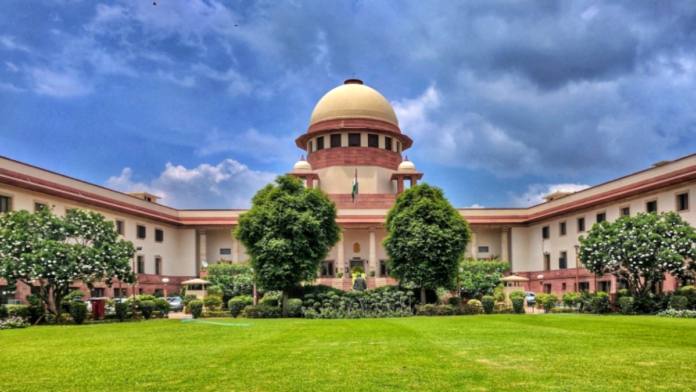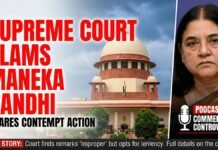
Key Points
- The Supreme Court has reserved its decision on granting an interim stay on the Waqf Act after three days of detailed hearings.
- Multiple petitions challenge the Act, alleging discrimination and violation of fundamental rights, while six BJP-ruled states support recent amendments.
- The Centre argued that only Muslims can create waqfs, though non-Muslims may donate to waqf properties.
- The government defended the five-year practice requirement for creating waqf, citing concerns over misuse and fraud.
- Protection of tribal lands was a major issue, with arguments that waqf creation could irreversibly affect scheduled tribes’ rights.
New Delhi: The Supreme Court of India on Thursday reserved its order on the interim stay sought against the Waqf Act, following an intense three-day hearing that saw passionate arguments from both the Centre and petitioners. The case has drawn nationwide attention, with several petitions challenging the constitutional validity and fairness of the Act, and six BJP-ruled states intervening in support of recent amendments.
What Is the Waqf Act Dispute?
The Waqf Act governs the administration of waqf properties—endowments made for religious or charitable purposes under Islamic law. Recent amendments, especially those made in 2025, have been challenged on the grounds of discrimination, alleged encroachment on tribal lands, and violation of fundamental rights.
Key Arguments Presented
Centre’s Stand: Only Muslims Can Create Waqf
Solicitor General Tushar Mehta, representing the Union government, clarified that:
- The original Waqf Act (1923) allowed only Muslims to create waqfs.
- The 2013 amendment briefly allowed non-Muslims to create waqfs, but this was rolled back due to concerns about potential misuse and fraud, especially to defeat creditors.
- Non-Muslims are still permitted to donate to waqf, but cannot create new waqf endowments.
Mehta explained,
“Creation of waqf is a legal act with permanent consequences. To avoid misuse, a five-year practice requirement for Muslims exists. Non-Muslims can always make donations, but the right to create waqf is distinct.”
Tribal Land Protection: Section 3-E
A major concern raised by the Centre was the protection of tribal land:
- Section 3-E of the Act prohibits the creation of waqf on land in scheduled areas, to safeguard tribal populations.
- The government argued that waqf creation is irreversible and could severely impact the rights and land security of vulnerable tribal communities.
- Mehta cited cases where tribal lands were allegedly encroached upon under the pretext of waqf, leading to victimization of tribal groups.
States’ and Petitioners’ Positions
- Senior advocate Ranjit Kumar, for Haryana and a tribal organization, supported the 2025 amendments, highlighting instances where large tracts of land (e.g., 500 acres in Rajasthan) were claimed as waqf, even when allocated for non-religious purposes.
- Petitioners opposing the Act argued it is discriminatory towards Muslims and violates their constitutional rights, particularly regarding property and equality.
CJI’s Observations
Chief Justice BR Gavai noted that the requirement for waqf registration has existed since the 1923 and 1954 laws, indicating that the concept is not new and has historical precedent.
Political and Legal Context
The case has become politically charged, with six BJP-ruled states—Haryana, Madhya Pradesh, Gujarat, Uttar Pradesh, Assam, and Uttarakhand—backing the Centre’s amendments. Their intervention signals a broader debate over the management of religious endowments and the rights of various communities.
What Happens Next?
With the Supreme Court reserving its order, the future of the Waqf Act and its recent amendments hangs in the balance. The Court’s decision will have significant implications for property rights, minority protections, and tribal land security across India.
Case Summary Table
| Issue | Centre’s Position | Petitioners’ Position | States’ Stand |
|---|---|---|---|
| Who can create waqf? | Only Muslims | Should include non-Muslims | Support Centre |
| Non-Muslim donations | Allowed | Want right to create waqf | Support Centre |
| Five-year practice rule | Needed to prevent misuse | Discriminatory | Support Centre |
| Tribal land (Section 3-E) | Must be protected | Law is being misused | Support Centre |
| Discrimination claim | Denied | Violates fundamental rights | Support Centre |
The Supreme Court’s forthcoming order could reshape the legal landscape for waqf properties, minority rights, and tribal land protection in India. The verdict is now awaited with keen interest by all stakeholders.
















































